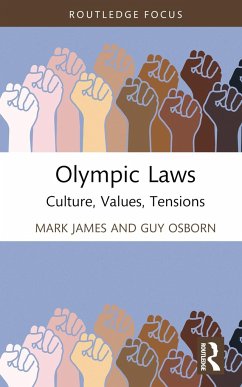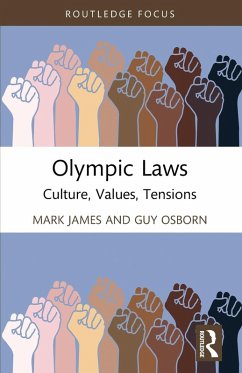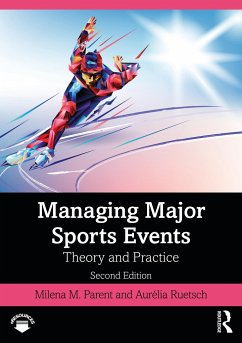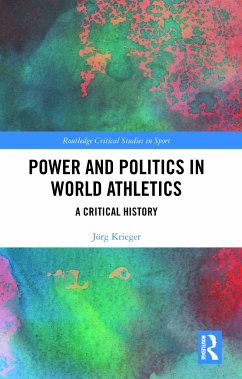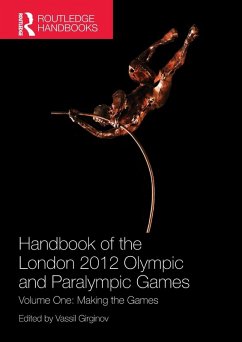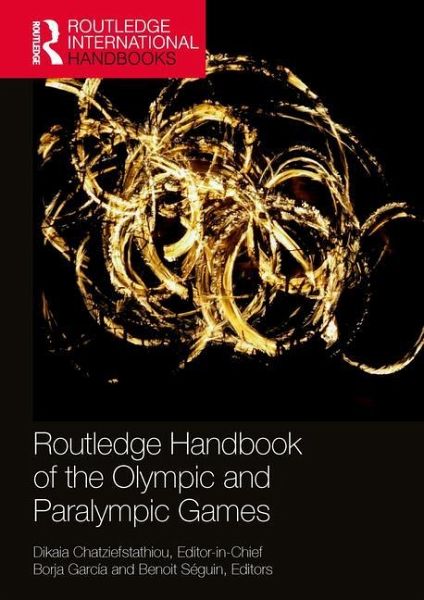
Routledge Handbook of the Olympic and Paralympic Games
Versandkostenfrei!
Versandfertig in 6-10 Tagen
49,99 €
inkl. MwSt.

PAYBACK Punkte
25 °P sammeln!
This handbook offers an important and timely contribution to the interdisciplinary field of Olympic studies. It brings together for the first time in a single volume a complete analysis of current and future economic, commercial, socio-political, cultural and governance challenges facing both the Olympic and Paralympic Games, their athletes and institutions.The book presents new research and broad surveys exploring pressing debates, challenges and possible solutions surrounding the modern Olympic and Paralympic Games, across diverse socioeconomic and political contexts. Featuring chapters writ...
This handbook offers an important and timely contribution to the interdisciplinary field of Olympic studies. It brings together for the first time in a single volume a complete analysis of current and future economic, commercial, socio-political, cultural and governance challenges facing both the Olympic and Paralympic Games, their athletes and institutions.
The book presents new research and broad surveys exploring pressing debates, challenges and possible solutions surrounding the modern Olympic and Paralympic Games, across diverse socioeconomic and political contexts. Featuring chapters written by leading scholars, athletes and administrators from a range of disciplines and backgrounds, the handbook is divided into four main areas: athletes, business, governance and socio-cultural issues within the Olympic and Paralympic Games. Examining key themes, theories and new emerging issues within the field, the book offers expert insights into every major topic related to the Olympic and Paralympic Games, including doping, integrity, athletes' rights, culture, nationality, sponsorship, branding, governance, sports policy and law, marketing, social media, technology, e-sports, politics, ethics, international relations, legacy and impact.
The only up-to-date handbook to reflect the true breadth and depth of this international field of research, the Routledge Handbook of the Olympic and Paralympic Games is a landmark publication for all students and scholars of sport studies, as well as those working in sport business, media, event management and administration, economics, marketing, management, politics, Olympic studies and cultural studies. It is also an important resource for sport management practitioners and sports officials.
The book presents new research and broad surveys exploring pressing debates, challenges and possible solutions surrounding the modern Olympic and Paralympic Games, across diverse socioeconomic and political contexts. Featuring chapters written by leading scholars, athletes and administrators from a range of disciplines and backgrounds, the handbook is divided into four main areas: athletes, business, governance and socio-cultural issues within the Olympic and Paralympic Games. Examining key themes, theories and new emerging issues within the field, the book offers expert insights into every major topic related to the Olympic and Paralympic Games, including doping, integrity, athletes' rights, culture, nationality, sponsorship, branding, governance, sports policy and law, marketing, social media, technology, e-sports, politics, ethics, international relations, legacy and impact.
The only up-to-date handbook to reflect the true breadth and depth of this international field of research, the Routledge Handbook of the Olympic and Paralympic Games is a landmark publication for all students and scholars of sport studies, as well as those working in sport business, media, event management and administration, economics, marketing, management, politics, Olympic studies and cultural studies. It is also an important resource for sport management practitioners and sports officials.






